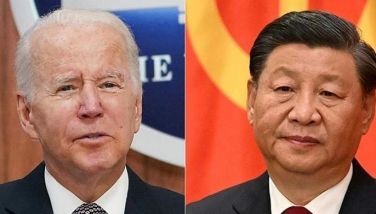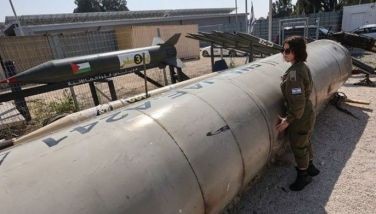US think tank proposes shake-up of Taiwan defense
WASHINGTON — Fears of war between Taiwan and China have eased in recent years, but the growing gap in their military capabilities has prompted a U.S. think tank to lay out a radical new approach in how Taiwan could defend itself if China invaded, relying less on conventional forces and more on guerrilla-style tactics and cyberwarfare.
The nongovernment Center for Strategic and Budgetary Assessments is wading into delicate territory. Relations have between democratic Taiwan and communist-governed China have improved as they have forged economic agreements — a development welcomed by the United States.
Washington, however, remains obligated by U.S. law to provide Taiwan the means to defend itself. U.S. lawmakers have accused the Obama administration of refusing to sell Taiwan new fighter jets and submarines for fear of angering Beijing, which claims sovereignty over the self-governing island.
Congress last week approved the possible sale of four U.S. frigates to Taiwan, drawing Chinese criticism, but Taiwan shows growing willingness to develop its own hardware. On Tuesday, it launched a stealthy, missile-launching corvette, the first of ship of its kind produced by Taiwan.
But China's rapid military modernization has exposed a widening gulf between its forces and those on Taiwan, which spent $10.8 billion on its defense in 2013. According to a U.S. Defense Department estimate, China's military spending that year was $145 billion.
"With the resource gap approaching fourteen-to-one, even if Taiwan were to massively increase its defense budget, it would not reverse the cumulative advantages the PRC has accrued over the past two decades," said the center's report, released this week. PRC stands for the communist-governed People's Republic of China.
A U.S. congressional advisory panel reported last month that China has about 2,100 combat aircraft and 280 naval ships available for a Taiwan conflict, and more 1,100 short-range ballistic missiles that could incapacitate Taiwan's air force in the early hours of a conflict. Taiwan has about 410 combat aircraft and 90 naval combat ships.
The center advocates an "asymmetric approach," with Taiwan using lighter forces to counter rather than match China's strengths. While Taiwan increasingly emphasizes such tactics, its military modernization plan still calls for big, conventional acquisitions, the report says.
For a fraction of the cost of building eight large diesel submarines that Taiwan is also planning, it could produce a fleet of 42 "midget submarines" similar in size to craft that North Korea and Iran have, the report says. These submarines could provide warning and targeting data for anti-ship cruise missiles deployed on mobile launchers resembling trucks hauling shipping containers.
To combat Chinese fighter planes, the report proposes "guerrilla" air defense, using hundreds of surface-to-air missiles — a tactic it says proved effective for North Vietnam against the United States during the Vietnam War. And if Chinese forces make it on land, guerrilla tactics to harass the occupying forces would slow their advance toward Taipei. It says cyberwar against Chinese battle networks would also be one of Taiwan's viable deterrents and "cost-imposing strategies."
The report's authors say asymmetric approaches toward defense would reduce Taiwanese dependence on U.S. armaments, and should also appeal to other neighbors concerned over China's military buildup.
Nations like Vietnam, the Philippines and Indonesia "have territorial disputes with China and face many of the same challenges responding to the rapid Chinese military modernization looming over Taiwan," the report says.
- Latest
- Trending




























